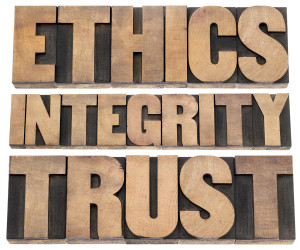 It’s the age-old question, “Which came first, the chicken or the egg?” In marketing, it goes, “Which came first, the consumer’s need or the desire created by the marketer?” Do marketers influence consumer behavior? Do they create an artificial need? Even if there is a need, are marketers right to play on that need or desire? Undoubtedly, marketers should admit that questions of morality exist.
It’s the age-old question, “Which came first, the chicken or the egg?” In marketing, it goes, “Which came first, the consumer’s need or the desire created by the marketer?” Do marketers influence consumer behavior? Do they create an artificial need? Even if there is a need, are marketers right to play on that need or desire? Undoubtedly, marketers should admit that questions of morality exist.
In speaking with friends outside of the marketing field, there is the view that marketing in inherently immoral. In fact, when I first met a good friend, her initial reaction to my career choice was one of incredulity, and she instantly challenged me on the morality of marketing.
Marketers rely on people’s tendency to make emotional decisions. For example, Porsche may target consumers who desire to own a faster car, because they love speed and the thrill they experience; they may also desire to be viewed by others as successful. Porsche carries a certain cache. Has Porsche created an artificial need in someone who already owns a reliable car? Or is Porsche only responding to a latent desire? And if the consumer acts on his desire for speed, but unfortunately crashes, is Porsche responsible?
With the rise of alcoholic caffeinated drinks a few years ago, there was much concern about the safety and marketing of these beverages, especially since many consumers were, according to the CDC, between 12 & 17 years-old. There also showed a rise in binge drinking among both men and women, which also led to many deaths, besides alcohol-imparied driving and risky behavior. Did the marketers of these beverages know that their product could have such an impact? If so, who is responsible? What is the marketer to do?
Admittedly, it is a question that may never be definitively answered. What is certain is that marketers need to admit to themselves what they are doing, and what influence they may have on the consumer by marketing their products in an attractive manner. As well, are they acting unethically by targeting an underage population to purchase an alcoholic beverage? If so, this is a clear example of unethical behavior. But if their product is only out in the public, but a consumer chooses to buy it, who is ultimately responsible? Are both responsible, autonomous players in the commercial exchange?


